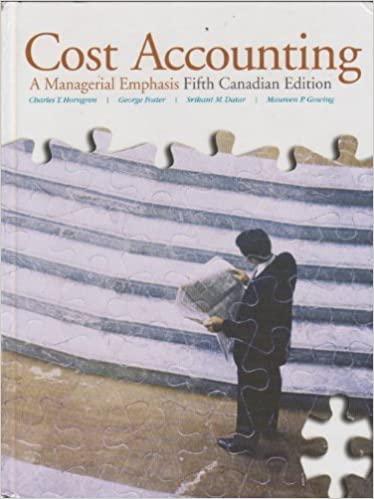Decentralization, goal-congruence, responsibility centres. Toronto Appliances Corpo- ration (TAC) is an integrated manufacturer of several types of
Question:
Decentralization, goal-congruence, responsibility centres. Toronto Appliances Corpo- ration (TAC) is an integrated manufacturer of several types of home appliances. TAC has a decentralized, divisional organization consisting of four product divisions, four manu- facturing divisions, and four support offices. The product divisions designed, engineered, assembled, and sold various home appliances directly to large customers both in Canada and the US. They are evaluated on ROI. They assembled the appliances from parts purchased either from the manufacturing divisions or from outside vendors. The manu- facturing divisions made approximately 80% of their sales to the product divisions and their managers are compensated on achieving profit targets. Parts made by the manufacturing divisions were generally designed by the product divisions; the manufacturing divisions merely produced the parts to specifications provided to them. The divisions were instructed to deal with one another as if they were independent companies. The prices for the parts transferred between manufacturing and product divisions were based on the actual prices paid to outside suppliers for the same or comparable parts, but they were adjusted to capture the differences in design. The same rule did not apply for sup- port offices (finance, purchasing, marketing, and industrial relations); they were required to charge the product and manufacturing divisions for their services at cost. REQUIRED 1. Is TAC a centralized or decentralized organization? 2. What type of responsibility centre should be:
a. the product divisions?
b. the manufacturing divisions?
c. the support offices? 3. What benefits and problems do you see in the TAC structure? Does it lead to goal- congruence and motivation?
LO1
Step by Step Answer:

Cost Accounting A Managerial Emphasis
ISBN: 9780135004937
5th Canadian Edition
Authors: Charles T. Horngren, Foster George, Srikand M. Datar, Maureen P. Gowing





